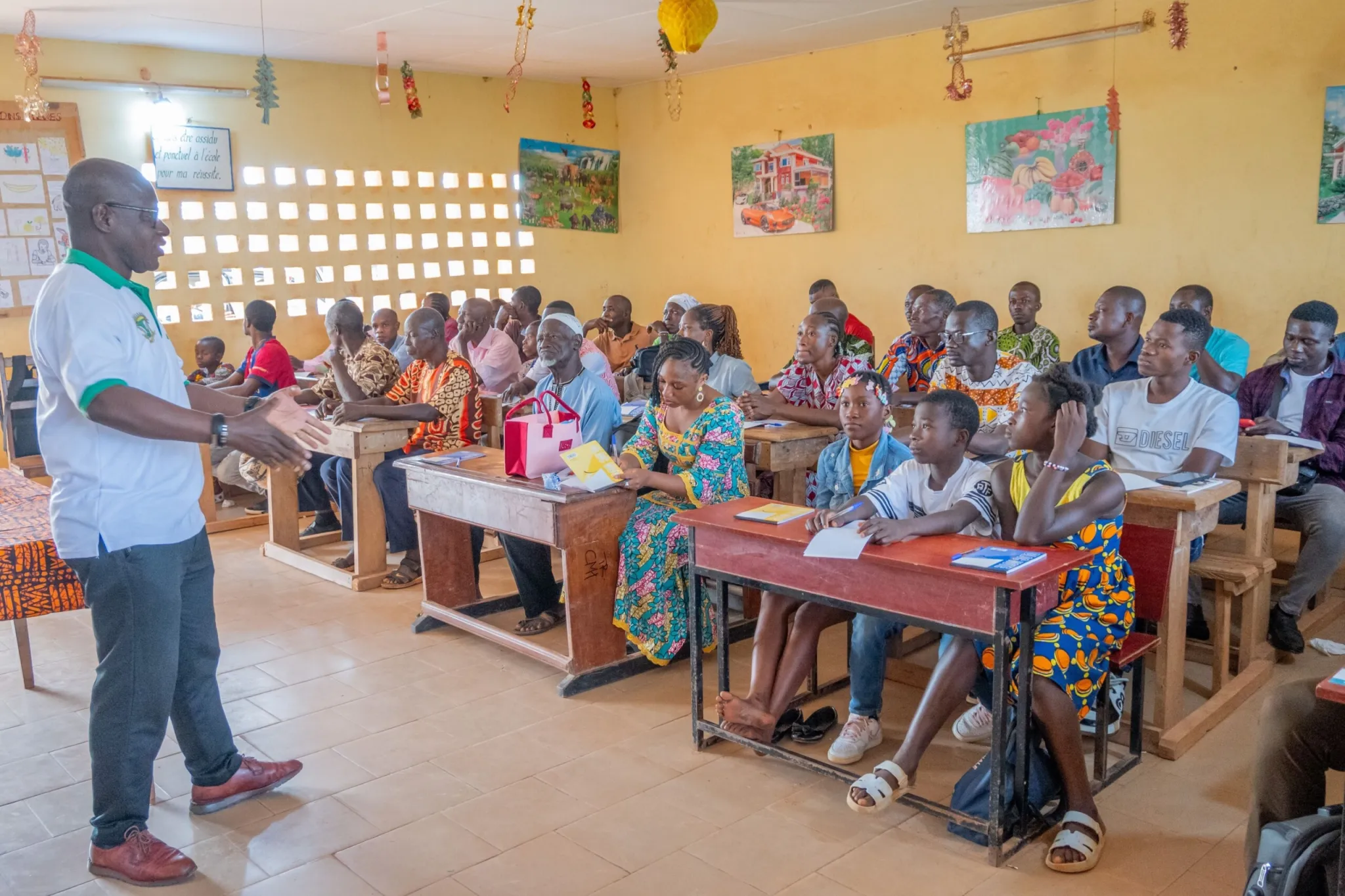A decade left for delivery
As we entered 2020, the UN Secretary-General called on the global community to commit to a decade of delivery. Indeed, we are just 10 years away from the 2030 deadline to meet the United Nations’ Sustainable Development Goal 4 of ensuring inclusive, equitable, quality education for all, but more than half of all children and youth worldwide – over 600 million – are not learning the basics in reading and math. Progress is particularly dire in regions like sub-Saharan Africa, where over 80 percent of children and adolescents will not learn to read proficiently during their primary and lower secondary school years, but is also stagnating in high-income countries. PISA results in middle- and high-income countries show one-third of students fail to meet minimum reading and math proficiency standards and at the current rate of progress, this will be unchanged in 2030. In short, access to education has improved globally but learning outcomes remain disappointing, inequitable, and an urgent challenge to address.
The Commission’s Learning Generation report provided clear recommendations to make faster progress to address this crisis and get all children learning within a generation. Its messages were spread far and wide by Commissioners and partners. During this outreach and engagement, leaders from all over the world asked repeatedly how they could prioritize and implement education reforms most effectively. Across different circumstances and contexts, the same questions emerged: what models and approaches could help them turn reform plans into real results?
To support leaders in low- and middle-income countries facing these challenges, the Commission held a series of workshops to enable policymakers to exchange experiences and solutions. These engagements highlighted a strong demand for deeper knowledge of effective reform implementation strategies and structures.
The implementation challenge
While the education community has made strides in the last decade in investigating what works in education, there are still large and looming questions on how to best implement those solutions.
The 2018 World Development Report on education outlines how low learning traps in countries are often related to delivery challenges, and a review of 118 high-quality studies for the RISE program finds poor governance and accountability to be a primary barrier to translating inputs to outcomes in developing country education systems.
Development partners supporting governments to implement reforms are also struggling with these challenges. The Global Partnership for Education has helped to improve the quality and evidence base of sector plans and is increasingly focused on supporting countries to translate sector plans into yearly operational plans. However, an evaluation of education sector plans found that only 25% of plans were considered “implementable” or “achievable,” and less than half were considered “strategic” in addressing identified root causes of system challenges.
Growing enthusiasm but limited evidence
In our engagements with policymakers and development partners, delivery approaches have repeatedly surfaced as a key strategy of interest to address implementation challenges. These approaches can be defined as an innovative process or structure that is designed to catalyze a set of functions or principles of effective delivery to shift the focus of service delivery from inputs to key outcomes for citizens.
Delivery approaches can take a variety of forms and in the past three decades, they have become increasingly popular and applied in a range of contexts. Their application can be traced back to the 1990s, when the New York City Police department introduced a new central management accountability model which successfully reduced crime rates. In the same decade, the UK’s Department for Education piloted a similar model, which in the early 2000s evolved into the UK Prime Minister’s Delivery Unit.
Interest in and use of this type of model has spread, first to other high-income countries but quickly to developing countries including Malaysia, Pakistan, and Tanzania as well. Since then, governments at a national and subnational level worldwide have established more than 40 delivery units. Complementing this model, some countries have also utilized delivery labs as a tool to set agendas and agree on priorities and implementation strategies. Consulting and expert advice on how to improve delivery and implementation is a common theme for nonprofits and private firms working with governments, and these models are often explicitly recommended.
Yet these approaches have rarely been the subject of peer-reviewed academic research, especially in developing countries. The little scholarly work that does exist is primarily focused on cases in the UK, US, and Canada. For decision-makers, there is also no objective policy-oriented evidence base of the conditions under which a delivery approach will succeed in different contexts. In addition, the proliferation of applications of these approaches has led to a variety of perceptions of delivery. There is no broadly accepted understanding of it or definition of its varied approaches. This matters particularly for the many countries (and donors) concerned about ensuring reforms reach marginalized groups that often see fewer improvements in learning outcomes.
This growing need and heightened interest in solutions to improve service delivery present an opportunity: How can we develop a deeper understanding of the factors that determine the likelihood of success of system-wide approaches in driving effective, sustained implementation of education reforms that result in improved learning outcomes?
Creating a stronger evidence base on reform implementation strategies
With support of the UK’s Department for International Development (DFID), the Education Commission is partnering with University of Oxford’s Blavatnik School of Government on a three-year initiative to investigate the use of delivery approaches in education. The initiative aims to better define how different delivery approaches are constructed, how they compare in structure and effect, why do some approaches work while others do not, and how we can empower decision-makers with the evidence to determine if an approach suits their needs.
DeliverEd will address these key questions:
- What is a delivery approach and what do different approaches look like and entail?
- Are different delivery approaches successful in improving the implementation of education policy interventions and programs in developing countries? If so, to what extent and under which conditions?
- In countries using a delivery approach, how was it applied and managed? What were the outcomes? How does this impact compare across countries?
- What is the perception of the approach and its impact by implementers and other system stakeholders, including students and teachers?
DeliverEd’s final products will make a unique contribution to our understanding of these approaches by capturing and comparing real-life delivery approaches in the education sector through case studies in several countries across Africa, Asia, and the Middle East.
Creating a community of practice and engagement around education reform implementation
DeliverEd also aims to mobilize and engage a community of research and practice around policy implementation to help accelerate more effective global efforts and impact to achieve SDG 4.
The Commission will engage with national and global stakeholders to capture how practitioners and policymakers are confronting implementation challenges and what information they need to empower decision-making and tackle obstacles to learning reforms. In the process, we’ll capture the stories of leaders and other stakeholders to learn from and share their experiences, building a global dialogue around these challenges. It is our hope that asking the right questions and raising awareness of the challenges leaders encounter will result in greater knowledge and understanding of the implementation challenges education policymakers face today. In later stages of the research, we will also share early results with this network to ensure that findings are captured in an accessible, policy-relevant format that is timely and relevant for decision-makers.
As part of this stakeholder engagement we will be working with a High-Level Advisory Group. The group is comprised of governance, public policy, and education leaders and experts who bring knowledge from the public, private, civil society, and academic worlds to this initiative. They will provide strategic guidance to DeliverEd’s overall direction and support the expansion of our network, serving as advocates to leaders at the global and national level.
We look forward to sharing updates as the research progresses and to engaging with you on our progress. Please subscribe to the Education Commission’s newsletter and follow us on our social media platforms to stay informed. If you have questions or are interested in collaborating and participating in our Community of Engagement, please contact deliver.ed@educationcommission.org.


